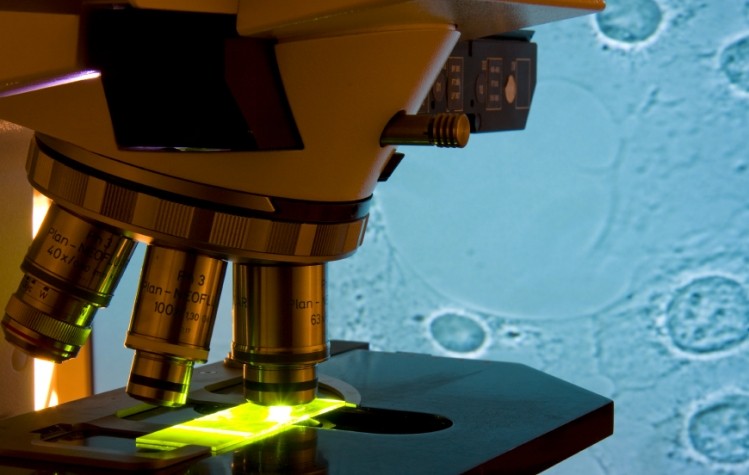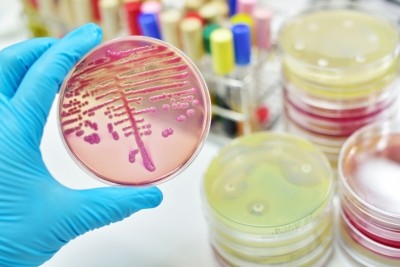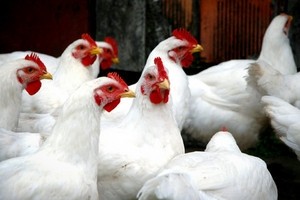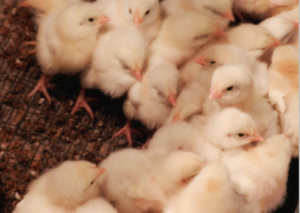DSM Award: Chinese study shows how antimicrobial peptides can trump antibiotics

Dr Na Dong, based at Northeast Agriculture University in Harbin in China, won the DSM Science and Technology Asia Award 2014. Her study aims to give industry a better understanding of the structure and function of ‘β-sheet’ peptides to determine their efficacy in terms of pathogen control.
Dr Gilbert Weber, corporate scientist, animal nutrition and health at DSM, said Dong’s work shows how such antimicrobial peptides could resolve certain problems associated with the wide use of antibiotics for growth promotion and therapy in animal production.
“The quality and the broadness of the research are outstanding. It is impressive that such in-depth understanding of the peptide field could be achieved during a PhD thesis,” he told feednavigator.
Weber said the potential application of Dong’s research findings for human health also played a role in the jury’s final decision.
A panel of international scientists chose Dong’s study out of four animal nutrition projects up for the DSM award at the China Academic Symposium of Feed Nutrition in Zhengzhou city last week.
On the peptide discovery trail
Antimicrobial peptides are naturally occurring amino acid compounds, are toxic to bacteria and can be found in nearly all organisms as a first defense against germs. Roughly 5,000 antimicrobial peptides have been discovered, predicted or synthesized so far, most of which do not induce resistant mutant bacteria strains.
They are said to have a broad spectrum of antimicrobial activity and have received considerable attention as alternatives to antibiotics in farmed animal husbandry.
While the hunt for antibiotic alternatives was a trigger for Dong’s work, the Chinese student said her thesis was also spurred on by the lack of knowledge and industry consensus around the antibacterial mechanisms of such compounds.
Her research explores the efficacy of different lengths of genetically engineered β-hairpin form peptides in terms of reducing Salmonella Typhimurium infection and concludes that molecularly transformed antimicrobial peptides with shorter length are better candidates for pathogen control.
Benefits of antimicrobial peptides in pig production
In August, this publication reported on how scientists from the German Leibniz Institute for Zoo and Wildlife (IZW) found antimicrobial peptides offered a “promising solution” for reducing the use of antibiotics in pig breeding.
Scientists from the IZW investigated the effect of two antimicrobial peptides (c-WWW and c-WFW) in cooperation with the Leibniz Institute of Molecular Pharmacology (FMP) and the Institute for Reproduction of Farm Animals Schoenow e.V.
The aim of the study, published in the journal PLOS ONE, was to evaluate whether selected synthetic antimicrobial peptides could be useful as substitutes for conventional antibiotics used in liquid sperm preservation.
Antibiotic resistance is becoming particularly problematic for pig breeders using artificial insemination – the method most commonly used in assisted reproductive technology worldwide. Freshly retrieved boar ejaculates always contain bacteria, which are detrimental to the quality and longevity of the liquid preserved sperm.
The addition of antibiotics to liquid semen is required by law and inhibits the growth of these bacteria. However, many types of bacteria quickly develop resistance to the antibiotics, which is why there is a need for new antimicrobial alternatives.
The German scientists first demonstrated how antimicrobial peptides fight bacteria effectively in test tubes.
Then they showed that two of the investigated compounds suppressed bacterial growth in liquid preserved semen preparations if combined with a small amount of the antibiotic ‘gentamicin’.
“Our results demonstrate activity of synthetic cationic antimicrobial peptides against different Gram-negative and Gram-positive bacteria in vitro. Furthermore, c-WWW and c-WFW suppressed bacterial growth in semen preparations in situ, especially when combined with a small concentration of gentamicin,” wrote the researchers.
Decreased antibiotic concentrations
These findings suggest that antimicrobial peptides could offer a means of reducing the use of conventional antibiotics in pig breeding.
“Antimicrobial peptides do not offer a complete alternative for traditional antibiotics in liquid sperm preservation, but allow a substantial reduction in their concentration,” said Dr Karin Müller from the IZW. “This is a benefit for people as well, as the occurrence of resistance will be reduced if fewer antibiotics are used.”














